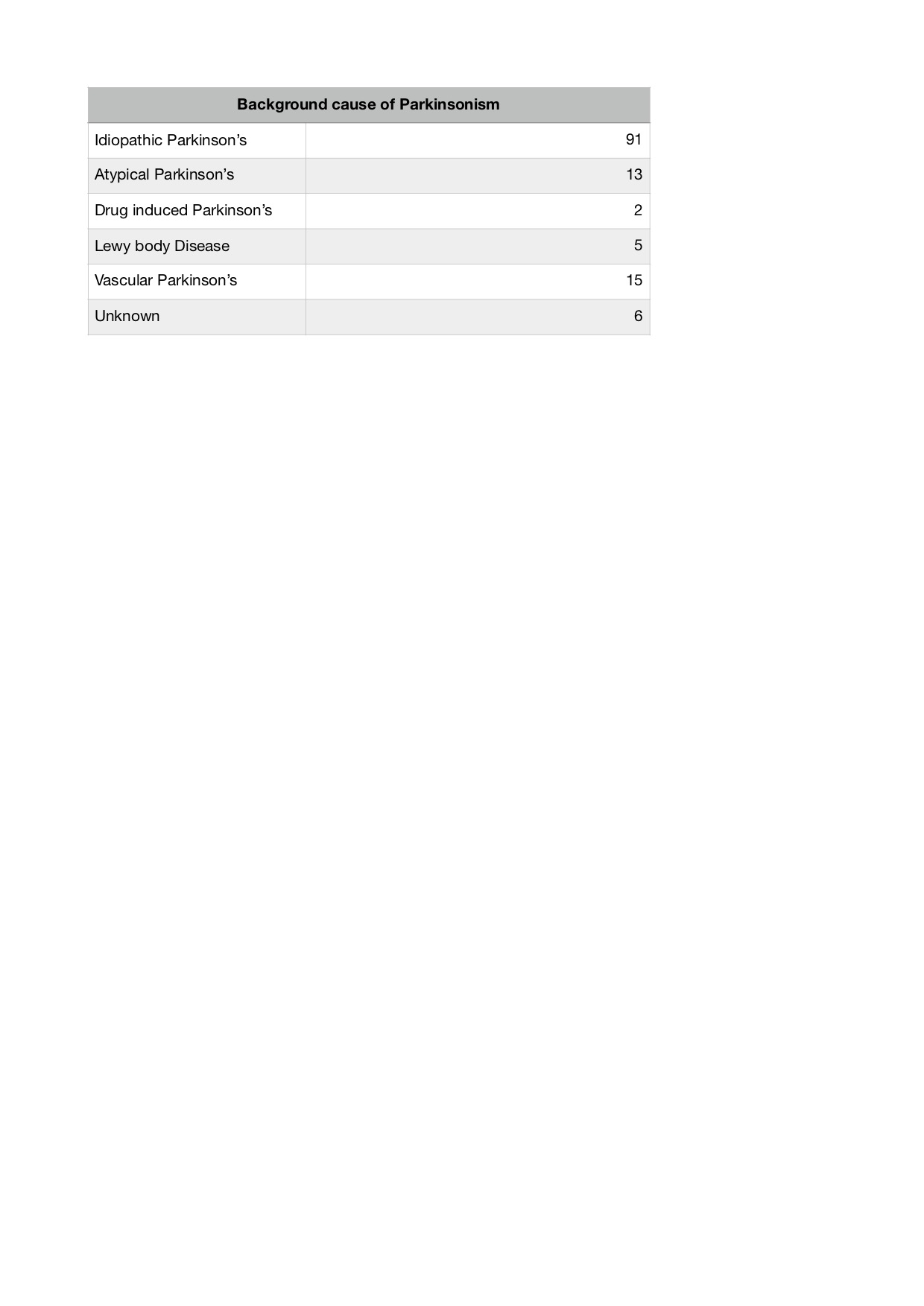Session Information
Date: Wednesday, September 25, 2019
Session Title: Phenomenology and Clinical Assessment of Movement Disorders
Session Time: 1:15pm-2:45pm
Location: Les Muses Terrace, Level 3
Objective: To evaluate our model of delivering inter-disciplinary, patient-focused care in an outpatient environment.
Background: The progressive and potential debilitating nature of Parkinson’s makes early identification of symptomatology, and swift patient-directed intervention vital. Our day hospital which is co-located with the Parkinson’s service is a goal driven outpatient based clinical unit, staffed by MDT and attended by patients for weekly half day session over a number of weeks.
Method: Retrospective analysis of day hospital attendees between July 2018 and February 2019. All patients with Parkinsonism were identified. Information was collected from electronic databases and patient notes, including performed assessments, interventions provided and clinical picture post involvement in day hospital. Patient satisfaction questionnaires were given to a random selection of patients.
Results: 132 patients were included in the study (61% male, 39%females); mean age 77 years (range 50- 97).The mean years since diagnosis is 6 years (range 1-20). Median and mode of H&Y score was 3. Median Clinical Frailty Scale was 4 (range 3-7). Commonest referrers were Parkinson’s service (107), GP and Community Rapid Access Service (8). Average number of sessions attended were 6 (range 1-13). 126 patients completed the therapy programme. All patients received medical assessments;74% had alterations to medications. 98% patients required physiotherapy intervention whilst 93% required occupational therapy intervention. 39% needed speech therapy, and 11% Dietetics. 3 people were identified for palliative care input. Of 42 patients screened for anxiety/depression, 26 needed further input. On MOCA screening (n =50), 82% had cognitive impairment. Commonest new diagnoses were cognitive impairment, postural hypotension and constipation. Patient’s self-reported experience was positive. The Tinetti scores improved by an average of 9 points in the group with pre and post scores available (n=18).
Conclusion: The day hospital allows for prompt identification of both motor and non-motor deterioration in patients with PD through inter-disciplinary, multi-dimensional assessment. This chronic disease care model is well suited to complex Parkinson’s management and allows large numbers of people to access specialist care.
To cite this abstract in AMA style:
J. Adenwalla, S. Jones, M. Oliver, N. Noushad, B. Mohamed, C. Thomas, T. Williams, S. Mahon. Day Hospitals Reinvented : the future of Parkinson’s care [abstract]. Mov Disord. 2019; 34 (suppl 2). https://www.mdsabstracts.org/abstract/day-hospitals-reinvented-the-future-of-parkinsons-care/. Accessed April 2, 2025.« Back to 2019 International Congress
MDS Abstracts - https://www.mdsabstracts.org/abstract/day-hospitals-reinvented-the-future-of-parkinsons-care/

